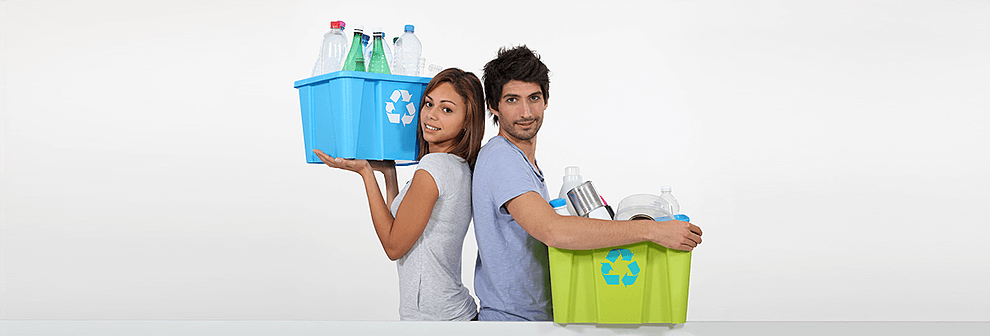Reducing Plastic Waste in Oceans
Posted on 29/10/2024
In recent years, the crisis of plastic pollution has emerged as one of the most pressing environmental challenges of our time. The World Economic Forum estimates that by 2050, there could be more plastic than fish in the oceans by weight if current trends continue. Reducing plastic waste in oceans is not just an ecological necessity but a societal moral imperative. In this article, we will explore the sources of oceanic plastic waste, its dire consequences, and effective strategies to combat this global menace.
Sources of Plastic Waste in Oceans
Land-Based Sources
Land-based sources account for about 80% of the plastic found in oceans. This includes litter that is improperly disposed of, which often ends up in rivers and ultimately, the sea. Urban runoff, industrial discharge, and inadequate waste management are significant contributors to this type of pollution. For instance, synthetic microfibers from washed clothes are a growing issue, as wastewater treatment plants are often unable to filter them out.
Sea-Based Sources
Approximately 20% of the plastic waste in the oceans comes from ocean-based activities such as shipping, fishing, and aquaculture. These include lost or discarded fishing gear, known as "ghost nets," which can entangle marine life and continue to capture fish long after they have been abandoned. Other sources include recreational boating and energy production activities, such as offshore oil and gas drilling.

Consequences of Plastic Waste in Oceans
Ecological Impact
The impact of plastic waste on marine ecosystems is devastating. Marine animals, including birds, fish, and mammals, often mistake plastic debris for food. This ingestion can lead to malnutrition, intestinal blockage, and even death. Entanglement in plastic debris can cause injury, drowning, or make it difficult for animals to swim or feed.
Human Health Risks
The ingestion of microplastics by marine life enters the food chain, potentially impacting human health. Contaminants, such as polychlorinated biphenyls (PCBs) and dioxins, can adhere to microplastics. When these plastics are ingested by fish and other marine life, the contaminants can bioaccumulate and pose serious health risks to humans who consume seafood.
Economic Costs
The economic impact of oceanic plastic waste is substantial. It affects the fishing industry through reduced fish catch and damaged fishing gear. Tourism industries in coastal areas also suffer as beaches and coastal waters become polluted with plastic debris. Additionally, the cost of cleaning up beaches and responding to issues arising from marine debris burdens local governments and taxpayers.
Strategies to Reduce Plastic Waste in Oceans
Improving Waste Management Systems
One of the most effective ways to prevent plastic waste from entering oceans is to improve waste management systems globally. This includes enhancing recycling programs, promoting the use of biodegradable materials, and ensuring that waste collection and disposal methods are efficient and environmentally friendly. Countries with efficient waste management systems, such as Germany and South Korea, have significantly lower rates of plastic pollution.
Legislation and Policy
Governments play a crucial role in mitigating plastic pollution through legislation and policy. Banning or taxing single-use plastics, such as plastic bags and straws, has proven effective in various countries. For example, the European Union has implemented regulations to ban certain single-use plastics by 2021. Policies that encourage the use of recyclable and biodegradable materials can also make a significant difference.
Innovative Technologies
Technological innovations offer promising solutions for reducing plastic waste in oceans. These include developing advanced materials that are biodegradable or easier to recycle and creating technologies that can clean up existing ocean plastic. The Ocean Cleanup project, for example, aims to collect floating plastic from the Great Pacific Garbage Patch using a giant floating barrier.
Corporate Responsibility
Corporations must also take responsibility for the plastic waste generated by their products. Companies like Unilever and Coca-Cola have committed to making their packaging recyclable, reusable, or compostable by 2025. Initiatives like Extended Producer Responsibility (EPR) make manufacturers responsible for the lifecycle of their products, including post-consumer waste management.

Public Awareness and Education
Grassroots Movements
Public awareness and grassroots movements are powerful tools in the fight against plastic pollution. Campaigns like "Break Free From Plastic" aim to educate consumers about the impact of plastic waste and encourage more sustainable living practices. Community-led beach clean-ups and awareness programs can significantly reduce local plastic waste.
Educational Programs
Educational institutions have a vital role to play by incorporating environmental science and sustainability into their curricula. Teaching the next generation about the importance of reducing plastic waste can lead to more environmentally conscious behaviors. Programs that encourage students to participate in recycling and sustainability projects can have long-lasting impacts.
Conclusion: A Collective Effort for a Plastic-Free Ocean
Reducing plastic waste in oceans is a complex issue that requires a multifaceted approach. From improving waste management systems to implementing stringent legislation and fostering public awareness, every action counts. Corporations, governments, and individuals must work collectively to address this urgent problem.
The stakes are high, but the solutions are within reach. By taking decisive action now, we can protect marine ecosystems, safeguard human health, and preserve the natural beauty and economic value of our oceans for future generations. Coastal clean-up initiatives, legislation on single-use plastics, and grassroots movements all represent vital steps towards a cleaner, healthier world.
Latest Posts
UK's Environmental Issues: Waste Dumping
Effortless Household Recycling Ideas






